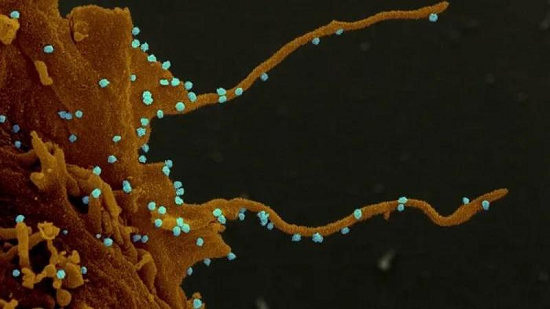Rockpine and bitter melon extracts exhibit antidiabetic properties by improving glucose and lipid levels, animal study finds
10/05/2020 / By Evangelyn Rodriguez

A recent study by South Korean researchers reported the development of a functional food that can help treat Type 2 diabetes. This functional food consists of a combination of extracts derived from Orostachys japonicus, a flowering medicinal plant commonly known as rock pine (wa-song in Korean), and Momordica charantia, a tropical vine that produces bitter melon.
The researchers tested the anti-diabetic activities of this functional food on cultured cells as well as in mice with Type 2 diabetes. They reported their findings in an article published in the Journal of Medicinal Food.
A combination of rock pine and bitter melon extracts shows potent anti-diabetic effects
Rock pine and bitter melon are widely used as alternative medicines. According to research, the leaves and stems of rock pine contain plenty of active compounds, such as fatty acid esters and flavonoids, which make it a medicinally useful plant. Rock pine is said to be an antispasmodic agent and is used in Korea to treat gingivitis, metritis (inflammation of the uterus walls) and cancer.
Bitter melon, on the other hand, is traditionally used to treat hyperlipidemia, digestive disorders, microbial infections and menstrual problems. Studies have found that bitter melon is a rich source of phenolic compounds, which are responsible for its beneficial properties. These include antioxidant, anti-inflammatory, antiviral, anticancer, cholesterol-lowering and anti-diabetic activities.
According to the researchers, medical nutrition therapy has been increasingly gaining traction among Type 2 diabetics because of its safety and cost-effectiveness. To test the anti-diabetic efficacy of the combined O. japonicus and M. charantia extracts (OME), which they developed for use in nutrition therapy, the researchers administered different concentrations of OME to mice with Type 2 diabetes for six weeks. Next, they measured metabolic parameters, fasting blood glucose and glycosylated hemoglobin levels.
The researchers also performed tissue sample analysis and assessed the levels of certain biochemicals in the animals’ blood and livers to measure diabetic liver injury and steatosis (abnormal fat retention). Additionally, they quantified the expression levels of lipogenic (fat-forming) and gluconeogenic (sugar-producing) genes using quantitative real-time polymerase chain reaction and determined Akt activation by western blot analysis. Akt is an enzyme involved in the insulin signaling pathway.
The researchers reported that OME significantly improved metabolic parameters in diabetic mice. It also reduced diabetic liver injury and steatosis, as confirmed by tissue and blood sample analyses. Moreover, the researchers found that OME significantly increased Akt activation, which resulted in the decreased expression of lipid accumulation- and gluconeogenesis-related genes.
In in vitro experiments, treatment with the rock pine extract alone produced the same results as OME treatment.
Based on these findings, the researchers concluded that OME is an anti-diabetic agent that can increase insulin sensitivity and could be used as a safe alternative therapy for Type 2 diabetes. (Related: Fewer carbs, more protein and fat: Restricted carb diets improve blood sugar control.)
Functional foods that can help control diabetes
People with Type 2 diabetes need to watch what they eat to maintain normal blood glucose levels. This means avoiding foods rich in carbohydrates, which can cause blood sugar spikes. Adopting a strict diet is crucial for managing diabetes and preventing diabetic complications, such as kidney damage, nerve damage, eye damage and cardiovascular disease. Fortunately, there are functional foods that can help eating a nutritious diet less of a challenge for diabetics. Here are 16 of them: (h/t to Healthline.com)
- Fatty fish like sardines, salmon and achovies
- Leafy greens like spinach and kale
- Cinnamon (ceylon or true cinnamon)
- Organic eggs
- Chia seeds
- Turmeric
- Plain Greek yogurt
- Nuts like almonds, Brazil nuts, hazelnuts and walnuts
- Broccoli
- Extra virgin olive oil
- Flaxseeds
- Apple cider vinegar
- Strawberries
- Garlic
- Squash
- Shirataki (glucomannan-rich) noodles
Keeping their blood sugar under control is important for diabetics, and eating nutritious foods with low glycemic indices is the key to effective diabetes management. To improve your condition naturally and increase your chance of remission, include functional foods with antidiabetic properties in your diet, such as bitter melon, flaxseeds and turmeric, and drink rock pine tea regularly.
Sources include:
Tagged Under: alternative medicine, anti-diabetes, bitter melon, diabetes cure, food cures, food is medicine, functional food, natural cures, natural medicine, remedies, research, rock pine




















